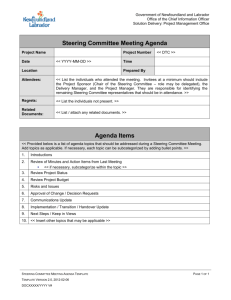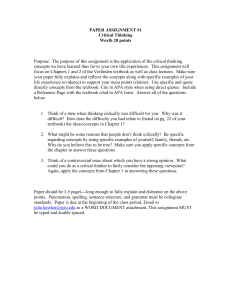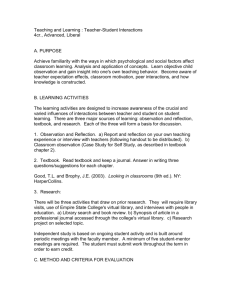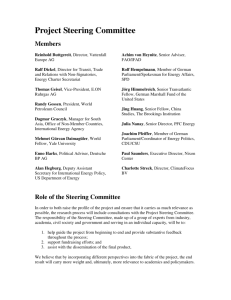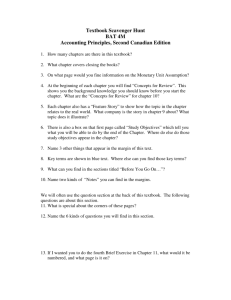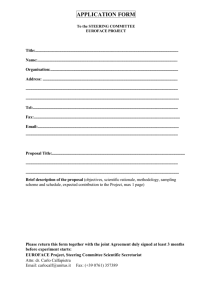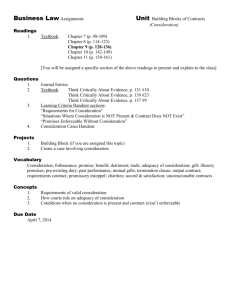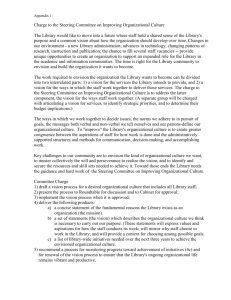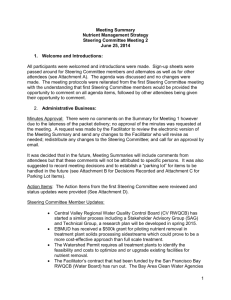Online Discussion Questions TEC 5133 Total Quality Systems
advertisement
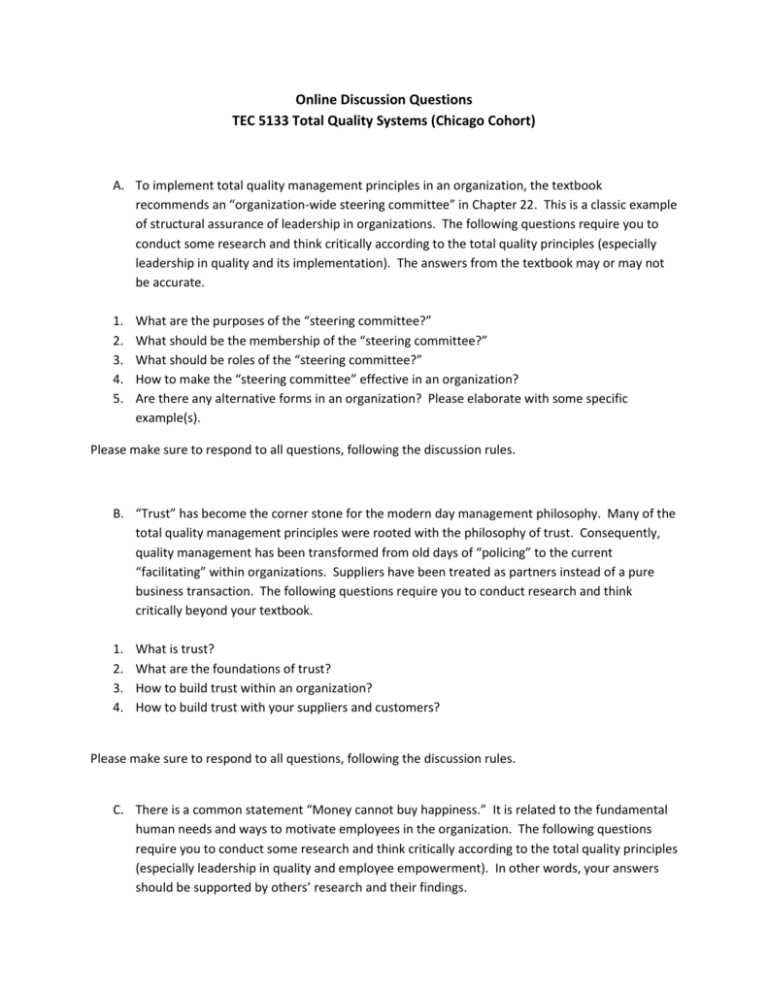
Online Discussion Questions TEC 5133 Total Quality Systems (Chicago Cohort) A. To implement total quality management principles in an organization, the textbook recommends an “organization-wide steering committee” in Chapter 22. This is a classic example of structural assurance of leadership in organizations. The following questions require you to conduct some research and think critically according to the total quality principles (especially leadership in quality and its implementation). The answers from the textbook may or may not be accurate. 1. 2. 3. 4. 5. What are the purposes of the “steering committee?” What should be the membership of the “steering committee?” What should be roles of the “steering committee?” How to make the “steering committee” effective in an organization? Are there any alternative forms in an organization? Please elaborate with some specific example(s). Please make sure to respond to all questions, following the discussion rules. B. “Trust” has become the corner stone for the modern day management philosophy. Many of the total quality management principles were rooted with the philosophy of trust. Consequently, quality management has been transformed from old days of “policing” to the current “facilitating” within organizations. Suppliers have been treated as partners instead of a pure business transaction. The following questions require you to conduct research and think critically beyond your textbook. 1. 2. 3. 4. What is trust? What are the foundations of trust? How to build trust within an organization? How to build trust with your suppliers and customers? Please make sure to respond to all questions, following the discussion rules. C. There is a common statement “Money cannot buy happiness.” It is related to the fundamental human needs and ways to motivate employees in the organization. The following questions require you to conduct some research and think critically according to the total quality principles (especially leadership in quality and employee empowerment). In other words, your answers should be supported by others’ research and their findings. 1. Why are monetary incentives important in any organization? 2. Whereas monetary incentives are important, is there a limit that money can help improve employee performance? In other words, can you expect the linear expectation that “the more money you pay for employees, the better performance you can see?” Please explain why according to the total quality principles. 3. Is there anything else besides money, which is important to employees in an organization? 4. Based upon the above analysis, what should be the ways to use monetary incentives to achieve the best performance of the organization? Please make sure to respond to all questions, following the discussion rules. D. Class Reflection This class reflection is due at 11:59 PM on Sunday, 12/12/10. Due to time constraints, we were not able complete the last step initially planned for our face-to-face meeting. Thus, we are using the discussion board to accomplish the task. The following was quoted from our guideline. “Presentation of quality systems and manual. Share your experiences, lessons and insights learned during the process of developing a total quality system and manual. Share team work experience, especially on how to resolve team problems if any. Share understanding how quality system was developed. Share understanding how to implement your quality system. Demonstrate ability to integrate all total quality principles and appropriate tools in the process. Demonstrate your positive attitude and a sense of humor.” Please provide your reflection according to the above requirements.
